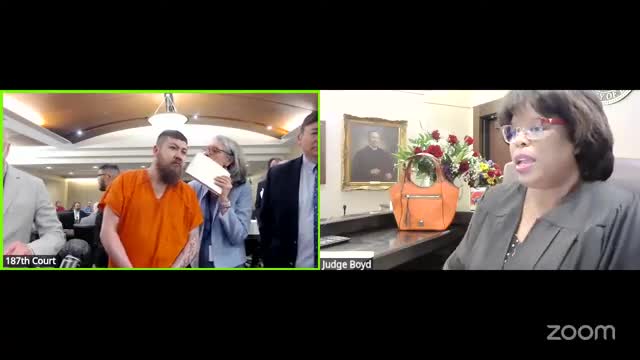Article not found
This article is no longer available. But don't worry—we've gathered other articles that discuss the same topic.
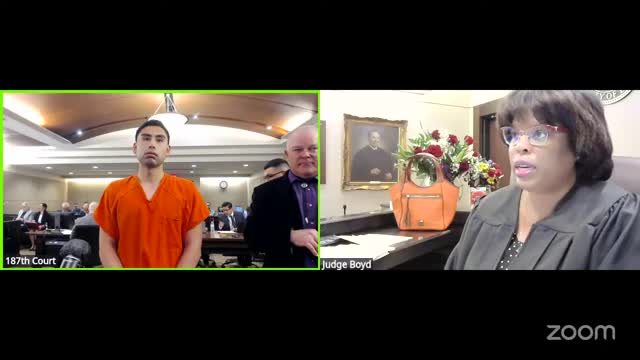
Court revokes Christian Escobar Reyna’s deferred adjudication, sentences him to two years after repeated probation violations
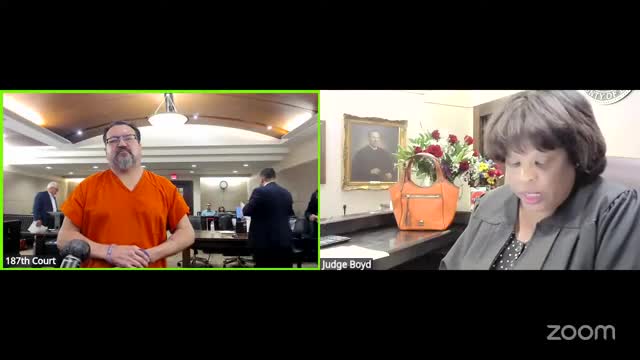
Freddie Arellano pleads; judge imposes concurrent 10-year prison terms with family‑violence findings
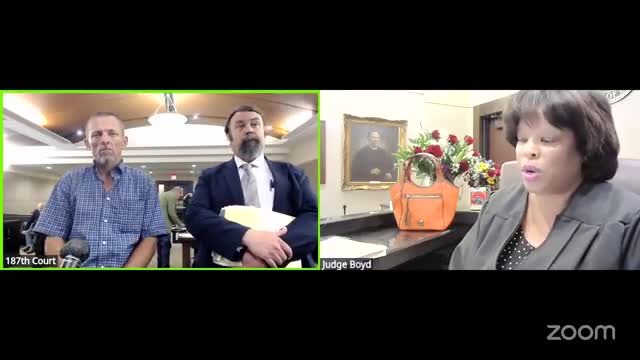
Judge Boyd sentences David Wayne Huff to six years' probation with treatment and monitoring conditions
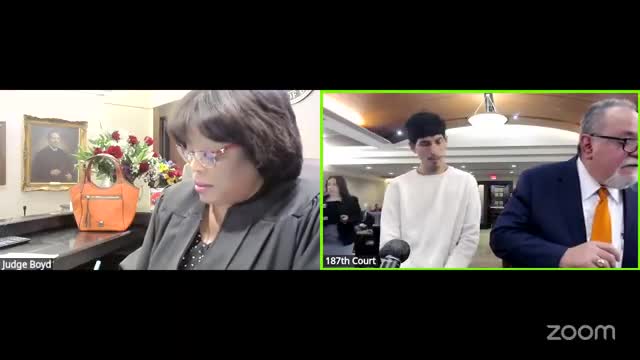
Judge Boyd: felony drug court at capacity; probation often needed for referrals, judge urges sober-support meetings
